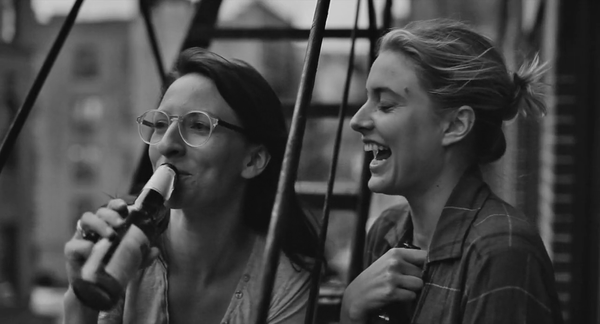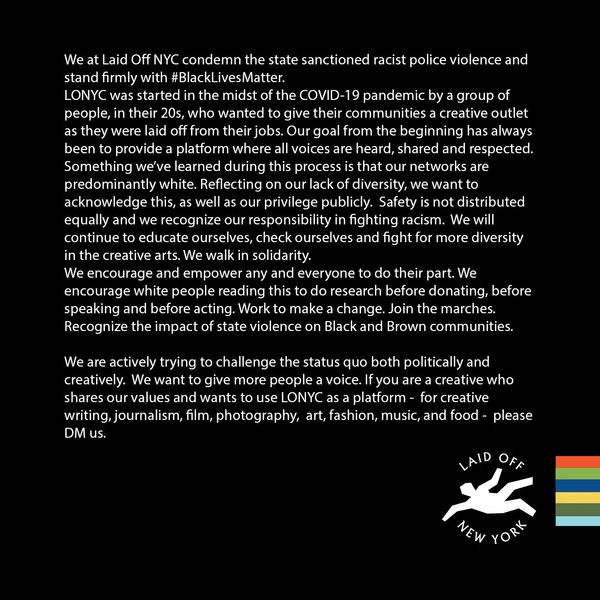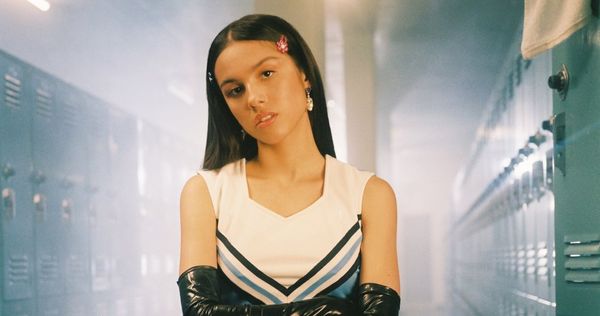by Aliya Farrukh Shaikh
Who hasn’t been there? You’re calling your friend but they don’t pick up. You start to question their silence. Is there something wrong? Are you not as close to each other as you used to be? These feelings are all the more familiar now, following last year’s lockdown, which stretched on for months and reduced our social lives to the little screens in our palms. A year into the pandemic, it’s hard not to feel bad about the relationships that dwindled because of the distance between us and the sudden growing up so many of us had to do. Frances Ha's titular character, played by Greta Gerwig, is no stranger to the circumstantial maturation and the changing character of a close friendship.
Frances is an aspiring and broke dancer from Sacramento living in New York City. Her movements are hurried and flourished. She runs fast and smokes cigarettes. She says strange things: “I’m so embarrassed I’m not a real person yet,” she remarks casually. Smoking indoors, she comments, “This makes me feel like a bad mother in 1987.” She is funny, charming, and generous with herself—there is so much of her because she is open and shares her thoughts in ways that the less awkward, more polished “adults” around her do not.
The 2012 comedy-drama, written by Gerwig and Noah Bombach, is about the struggle to stand together with one's friends and society while also standing out. In an early scene, Frances attempts to make breakfast for herself and her best friend, Sophie (Mickey Sumner). She comments, “I tried to make a frittata but it’s really more of a scramble.” This is true of her life, and her friendship with Sophie, too. She’s fumbling her way through, which is wonderful to watch—it’s strikingly relatable, which complements our constant schadenfreude as we look on—but puts a strain on the relationship.
The movie starts with a montage of Sophie and Frances running on the streets of New York City; their friendship is immersive. They hold hands, smoke cigarettes, and blow playful punches at each other. They lie down, make each other breakfast, watch each other pee, read, practice yoga. At one point, Frances tells another character that she and Sophie are like a married couple: "We talk, we don't have sex."
The scene feels nostalgic, like something that was and isn't anymore. (This sense is accentuated by Baumbach’s decision to shoot the film in black and white.) The montage unfolds like images in a scrapbook you might make on your computer when the most anticipated days of your life are behind you and you're left with nothing but memories. The shots are presented to us as if only to tell us they represent something that no longer exists.
The film, at its core, is a love story about two friends. In a 2013 interview with Zimbio.com, Gerwig said that, although the film is not autobiographical, it is “an amalgamation of all the love I’ve felt for all my female friends over the course of my life.”
In Hanya Yanagihara’s best-selling novel A Little Life (2015), the protagonist realizes that the “definition of friendship and its responsibilities'' is not always perceived similarly among friends. Yanigihara, however, doesn’t go as far as Baumbach and Gerwig, who place a friendship’s devolution at the center of Frances’s life. Films released around the same time as Frances Ha, such as Bridesmaids (2011) and The Help (2011), also explore friendships that do not culminate in sex or romantic love, but their plots and narrative arcs deal with other issues too. Frances Ha may not be a wholly unique representation of nonsexual friendships in contemporary culture, but it is a resonant portrayal of how these platonic relationships recede as more worldly pursuits (in Sophie’s case, a nicer neighbourhood, a career and romantic love) start dictating a person’s life choices.
The first crack in Frances Ha’s ‘love story’ appears when Sophie tells Frances she is planning to move out of the apartment they share because she has found a new place (with a new roommate) in her dream neighborhood, Tribeca. Sophie reassures Frances that they'll still be close: "I'm not leaving you. I'm just changing neighborhoods." The expression on Frances's face in this scene is a mix of confusion and hurt. This, she tries to explain to Sophie, was never part of their plan to “take over the world,” which Sophie narrates to Frances at the beginning of the movie. But Sophie has made up her mind.
Gerwig excels in moments where her characters realize that their sentiments towards friends, lovers or relatives may not be reciprocated. In her most recent directorial venture, Little Women (2019), a similar dynamic exists between Meg (Emma Watson) and her sister Jo (Saoirse Ronan). When Jo expresses frustration at Meg’s decision to get married, Meg reminds her that "just because my dreams are different than yours doesn't mean they're unimportant.” In Gerwig’s directorial debut, Lady Bird, the titular character (Ronan again) vies for the attention of the “cool kids” while neglecting her relationship with her mother, who suffers in turn. By constantly returning to these unrequited emotions and unexpected changes of plan, Gerwig reveals one of the most frustrating parts of interpersonal relationships: what she described in her Zimbio.com interview as “the pain of having a friendship change.”
Frances Ha is the story of a single woman who doesn't care that she's single as long as she has her best friend. Most of Frances’s musings and comments are about friendship; everything else is secondary. She dumps her boyfriend Dan in a matter of seconds for an opportunity to hang out with Sophie, causing Benji to call her "undateable.” In a film unburdened by concerns with sex and romance, Baumbach and Gerwig present a different the obsessiveness and pain that can arise when friendship wanes.
When Sophie abandons her, Frances starts to sound like a jilted lover. "We don't live together anymore," she randomly says in the middle of a conversation with friends. "This is the best night I've had since Sophie dumped me," she says after an evening at her friends Lev (Adam Driver) and Benji’s (Michael Zegan) apartment. "Boy trouble tonight?" Benji asks her at one point. "Sophie trouble," she replies.
After Sophie leaves, Frances spends the rest of the movie trying to convince herself that she and Sophie are still in love. She tries desperately to hold onto their relationship and attempts to convince others that they are still best friends: "She's been to my house for Christmas three times," she says. She tries to find answers when asked about Sophie's whereabouts (eventually settling on "she's busy with work”) and feels confused and humiliated when she discovers them from someone else. In one late scene, she frantically runs after Sophie’s moving car, but Sophie doesn’t look back.
Frances’s struggle is compounded by her failures outside of the friendship. After a dance show in which she is reserved as an understudy and doesn’t perform, Frances apologizes to her boss for taking too long to leave the performance space. She is fired moments later. It is at this exact moment that Frances should let go of her dream of being a dancer, but she doesn’t. Throughout the film, she questions her timing. Her age comes up in conversation, and it is insinuated that she isn’t as settled or as put-together as she should be.
When Frances goes home to her parents (played by Gerwig’s real parents) in Sacramento, the scenes are heart-warming. Her movements are slow; she looks sad but cared for. She cries waving goodbye to her family, and we want to cry too. It’s a reminder of how important it is to be loved by those you love.
Back in the city, she seems like a different person. She’s only away from New York for a few days, but it’s enough to give her the perspective she needs to start putting her life back together. She gets a job as an RA at her alma mater and waitresses on the side. Eventually, she finds some peace working with a smaller dance troupe as a choreographer.
In the film’s final scene, Frances achieves something she’s been fighting for since the opening credits: a name of her own. Settling into her new apartment, a one-bedroom in Washington Heights, she writes it out on a slip of paper and slides it into the nameplate of her mailbox, but Frances Halladay doesn’t fit, so she folds her last name behind it, leaving only “Ha” visible. Her name’s rejection is a coup d'oeil of her struggle throughout the film to be right-sized. But this final shot shows us that, even though she doesn’t exactly get what she wants, she has learned to be content with her niche in the world. She is Frances Ha.
Only after Frances grows internally does she realize that her relationship with Sophie is something that also must grow, and not in the way she’d planned it to. By coming to terms with the rest of her life, she is able to make peace with the changes in their friendship. Despite everything, she and Sophie still love each other; their love is just more of a scramble than a frittata.
“It's that thing when you're with someone, and you love them and they know it, and they love you and you know it," Frances famously monologues near the end of the movie. Hers is a simple, universal desire, and one that feels all the more urgent to us now, after a year in isolation: mutual and unconditional love.

Aliya Farrukh Shaikh is a writer and student living in Brooklyn. Get to know her better: @aloo_matar
*All images: Stills from Frances Ha (2012)



